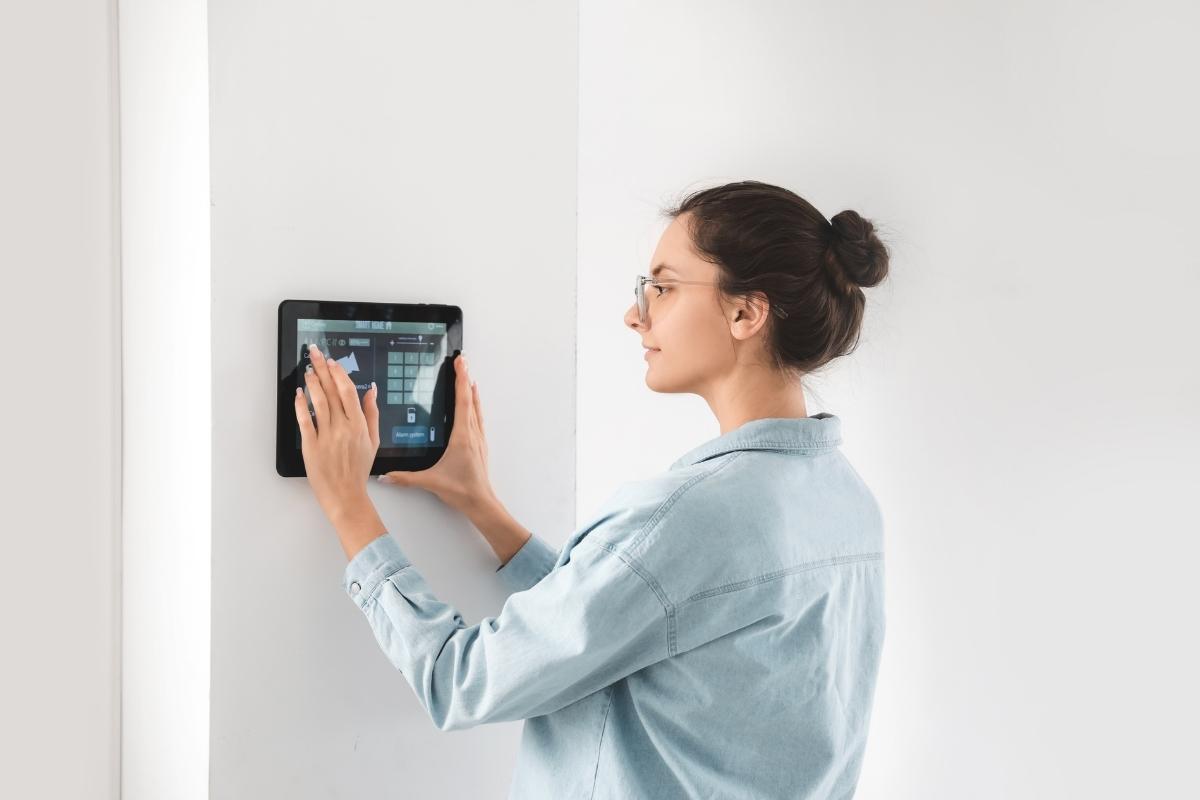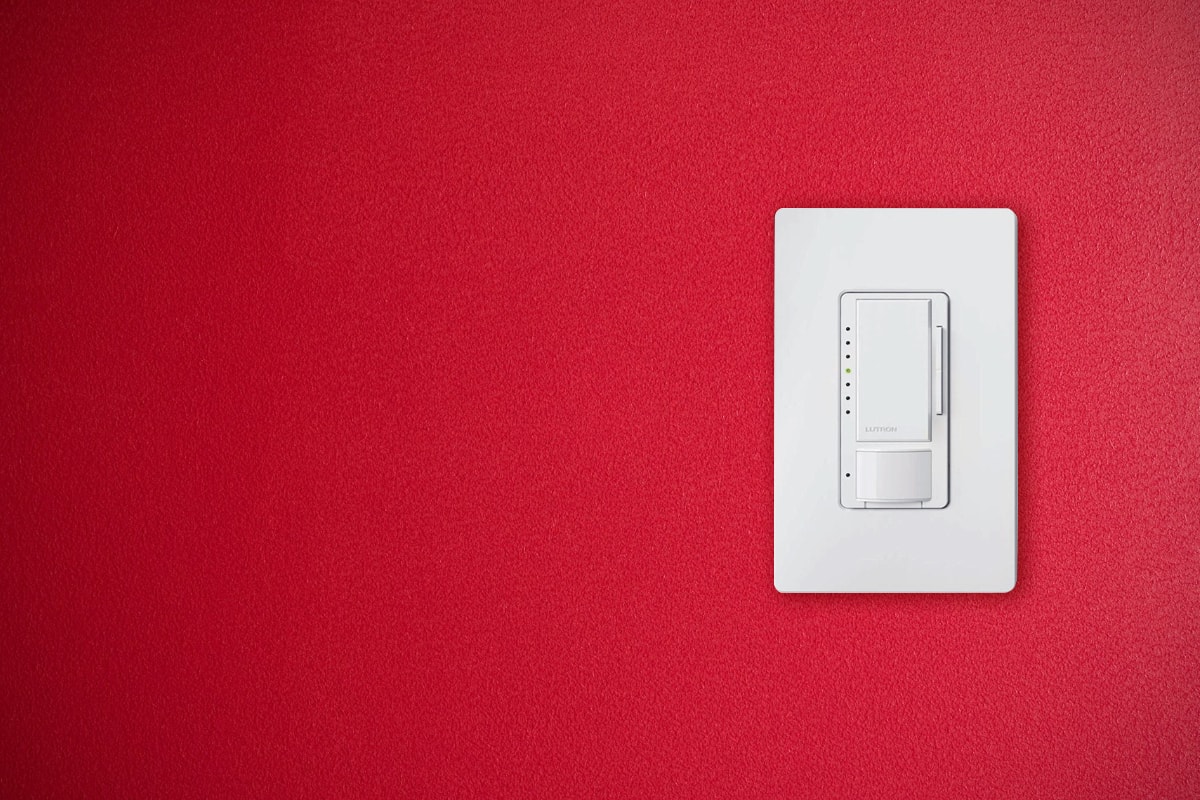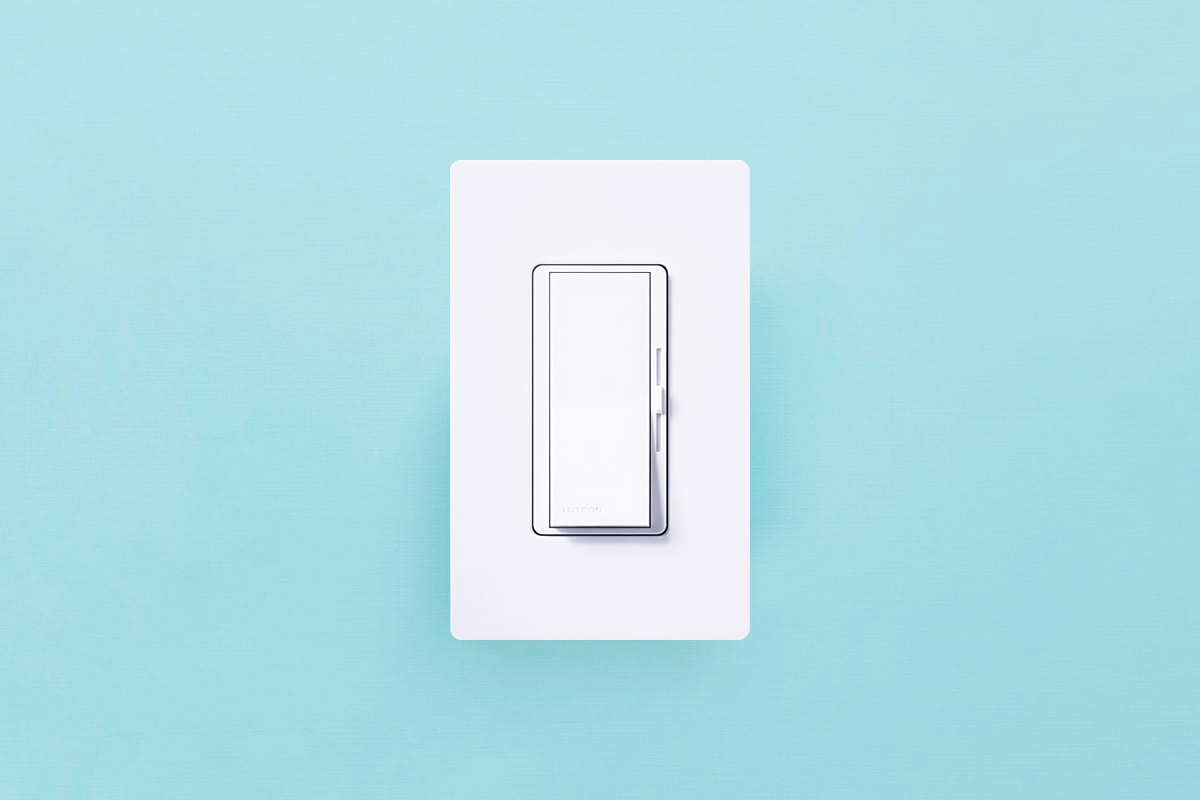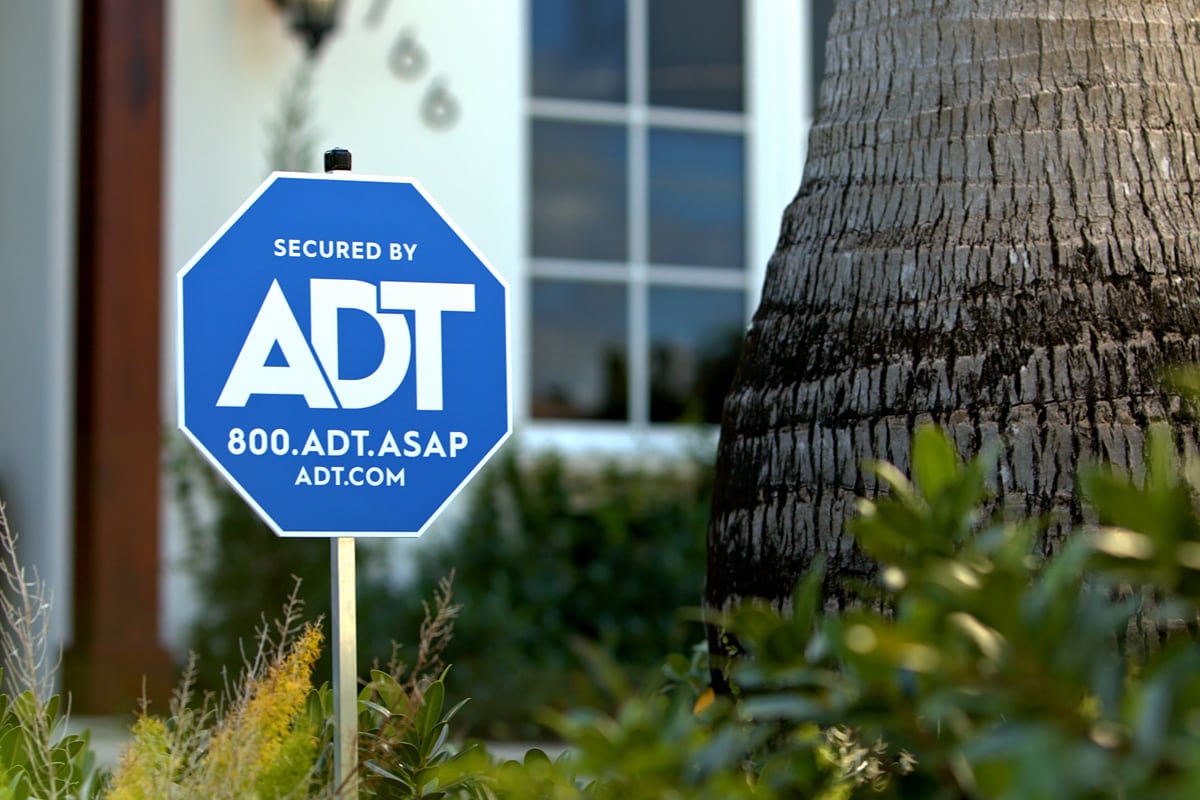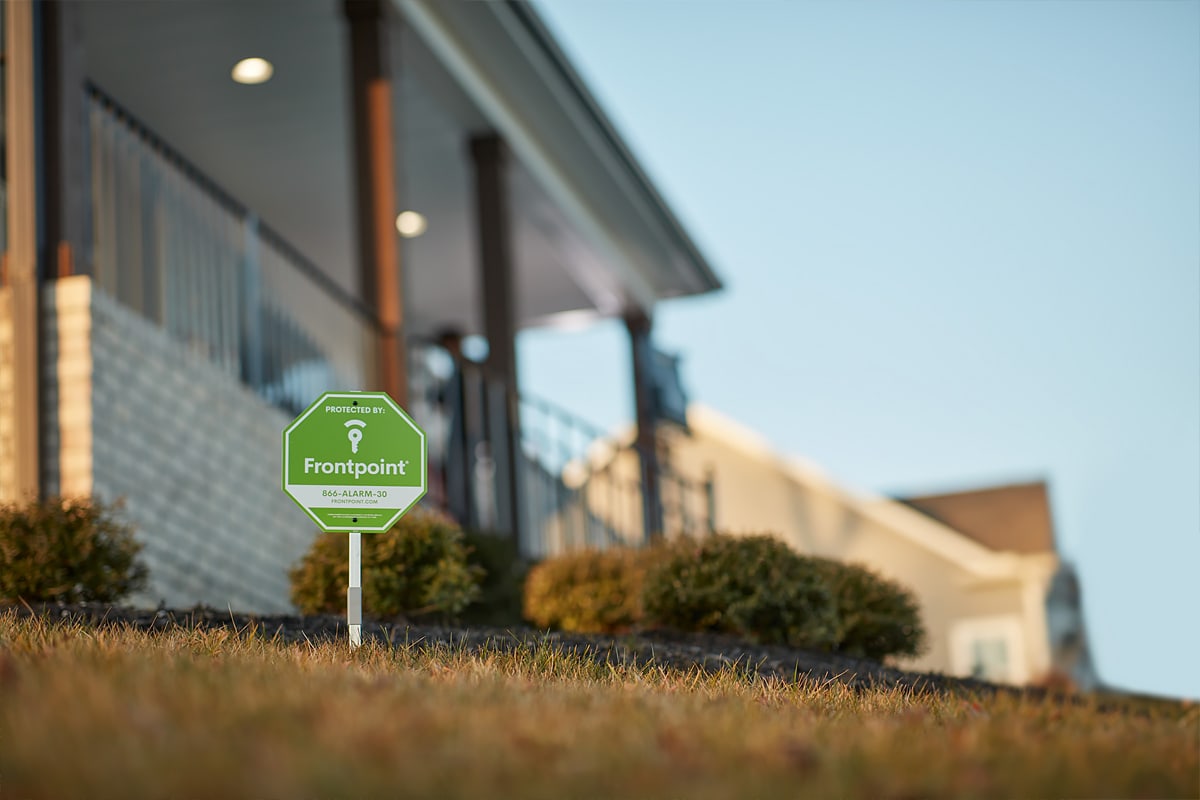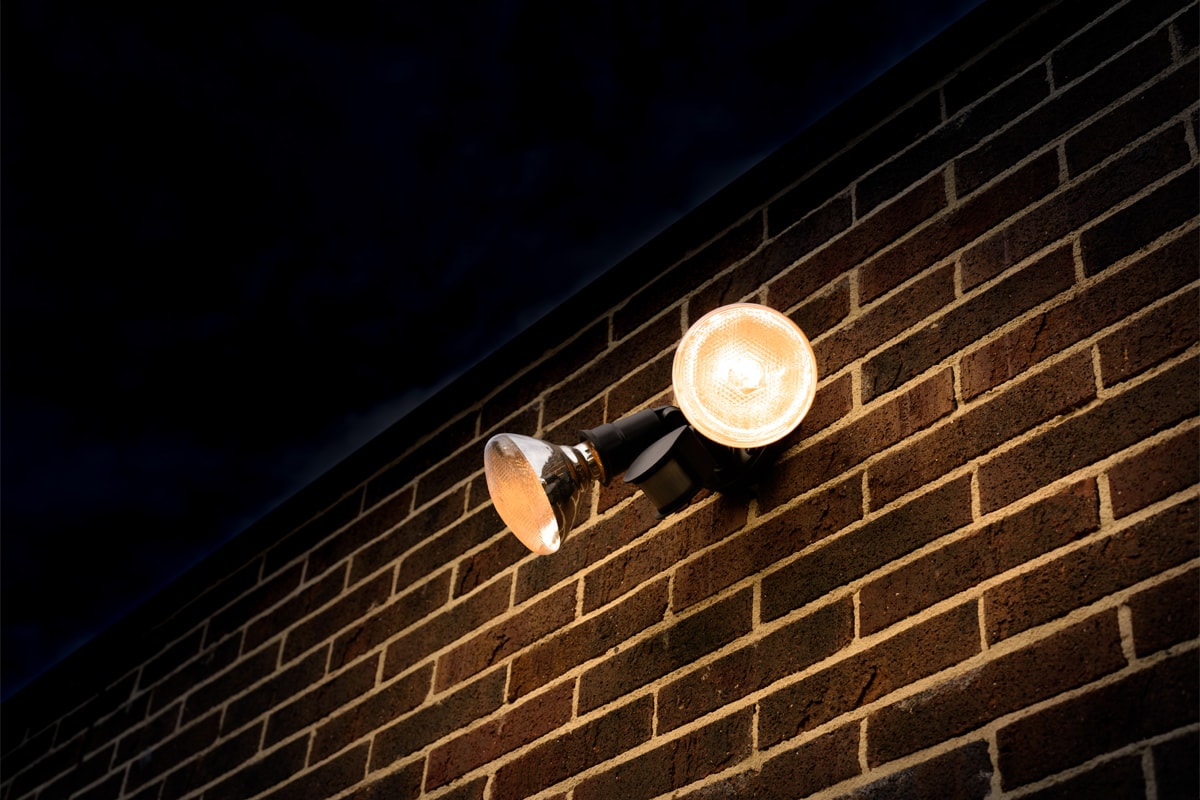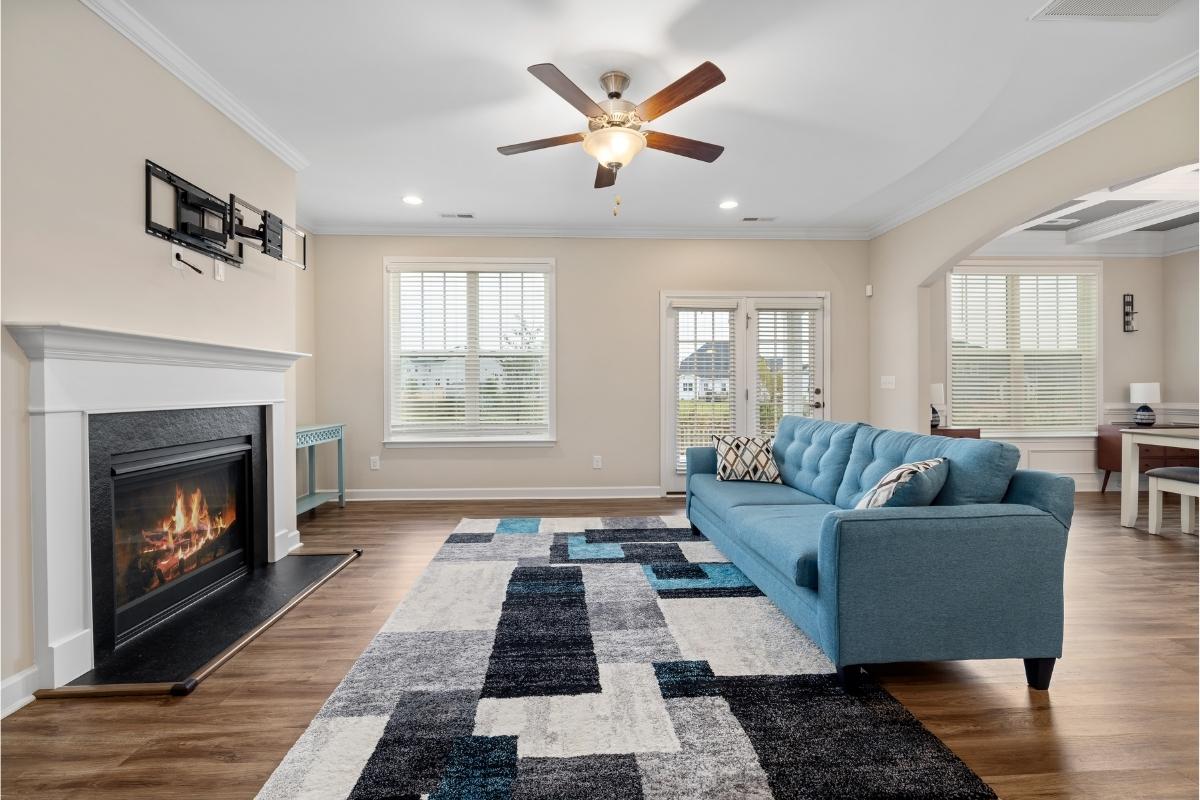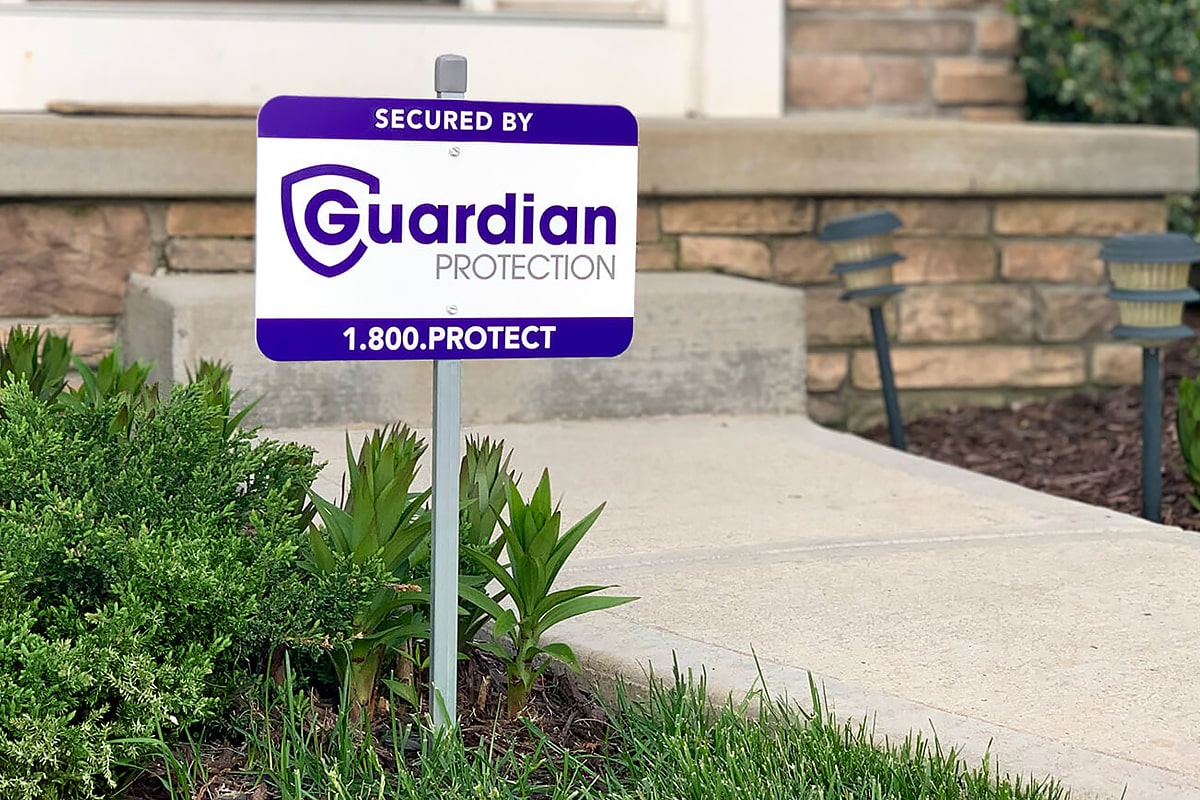The home security industry is a highly competitive and ever-evolving space with new companies, new technologies, and capabilities constantly emerging. And while this competition and activity bring innovations that lead to smarter and safer home security systems, it can also cause confusion for someone simply looking for the best security solution for their family.
We evaluated, assessed and compared the top-rated home security companies to see which company would emerge as the clear leader and the best home security system. We looked at important factors like cost, coverage, monitoring technology, equipment, customer service and more, scoring and ranking each of the top alarm companies in order to provide you with a clear picture of what the best security systems offer and how they stack up when compared to the competition.
1: Frontpoint Security
Our top pick has only been in the business for 14 years, but that hasn’t stopped Frontpoint from continuously raising and exceeding the bar when it comes to home security. They pioneered the DIY approach by making their award-winning system incredibly easy to set up featuring wireless equipment and 100% cellular monitoring technology, noted by most in the industry as the safest monitoring method available. And while cellular monitoring may not be available in areas with little or no cell reception, Frontpoint covers virtually the entire U.S. and will verify the signal strength in your area before you purchase.
In addition to their top-rated equipment and cellular monitoring, Frontpoint also leads when it comes to customer service. From the real customer reviews, it’s clear that not only does Frontpoint deliver on the front end, but their dedicated customer support and service teams are committed to keeping their customers happy and have gone above and beyond to fix existing problems time and time again.
Pros
- Top rated for customer satisfaction
- A+ Rating with BBB
- Pioneer in Wireless & Cellular systems
- Easy DIY Setup & Support
- Alarm.com Interactive Services
- Supports Z-Wave Technology for expandability
- Award-winning equipment from GE Security, 2Gig, and Qolsys
- Crash & Smash Protection
- 100% wireless and dedicated cellular monitoring 24 hours a day
- Straightforward pricing with no hidden fees
- 30-Day Risk Free Trial
- 3-Year Equipment Warranty
Cons
- Can only be used where cell service is available
- Two-Way Voice Communication Not Available
- Can only be used where cell service is available
2: Guardian Protection Services
Guardian Protection Services has collected numerous awards and recognition since they began in 1950, including winning the CSAA’s Central Station of the Year award and twice being named SDM Magazine’s Security Company of the Year, an honor no other alarm company has received. Today, the company maintains their commitment to a tradition of security and service excellence by continuing to provide professional installation and while embracing modern technologies and advances like wireless equipment. Their hands-on approach to home security extends beyond installation and repair. The company is well known for their commitment to the safety of the communities they serve by providing free GuardianKIDS ID events for children to share safety tips with parents and create identification packets of their children with fingerprints and other distinguishing characteristics. They also work with communities to set up neighborhood watch programs and provide free Crime Watch signs to help ensure the safety and security of their customers’ communities. As a long-standing, committed security company, Guardian Protection Services earned a well-deserved position as one of the best options for home security.
Pros
- Well established alarm company in business since 1950
- A+ Rating with BBB
- Best Price Guarantee
- 100% Cellular Monitoring
- Flexible equipment packages
- Award-winning central monitoring station
- Professional installation
- Alarm.com Interactive Services
- Comprehensive security and automation equipment options from GE Security and others
- Active community involvement
Cons
- Not available in all areas
- High early termination fees
3: Vivint
Vivint is leading the charge in bringing comprehensive security and automation solutions to homeowners. Developing their own proprietary equipment and technologies with their internal R&D team and integrating their platform with other smart devices, Vivint continues to garner awards and accolades for their innovations.
While lauded for their advanced technology and innovations, the company continues to receive complaints from consumers for their aggressive approach through door-to-door sales, which is reflected by their good but not great BBB rating. The company has expressed to us that they will bring new focus, attention and concern for customer service. We hope so. Vivint stands out with their technology, earning them a third place finish, but if they’re unable to improve their reputation among customers, their position may slip.
Pros
- State-of-the-art technology and 100% wireless equipment communication
- Comprehensive home automation features and equipment
- Lifetime equipment warranty
- Built-in system diagnostics and notifications if the system can’t communicate with the central station
- 100% Cellular Monitoring
- Professional installation
- Two-Way Voice Capability
Cons
- Aggressive sales tactics
- Long-term contract
- Expensive monitoring rates
4: ADT Security
ADT is the oldest and most recognized brand in the home security industry and has been providing security and monitoring services for over 100 years. Supported by a national network of dealers and installation technicians, ADT continues to be the largest alarm company in the country with over six million customers. ADT owns and operates six monitoring centers across North America, ensuring their ability to provide 24/7 monitoring for all their customers. But size and age can also inhibit new growth and innovation. It took ADT a while to bring interactive and remote services to their service offering with ADT Pulse. Additionally, the vast network of authorized dealers often leads to inconsistent and unsatisfactory experiences for customers who end up dealing with poorly trained technicians and consultants. ADT also fails to provide clear and understandable pricing for consumers. As smaller, more nimble companies continue to bring new technology and innovation to homeowners, ADT will need to accelerate their R&D pace if they want to continue to maintain their dominant position in the security food chain.
Pros
- Oldest alarm company in the U.S
- Multiple monitoring stations across the U.S. for uninterrupted service even during regional disasters
- 24/7 phone and email support for customers
- Professional installation and on-site security consultation
- Same day installation available in some areas
- A+ BBB Rating
Cons
- Hardwired equipment
- Confusing or non-existent pricing information
- Independent dealers, inconsistent promotions and customer experience
- Cellular monitoring only available as backup
5: Scout Alarm
A relative newcomer to the home security space, Scout Alarm was founded in 2012 to provide homeowners with an advanced, affordable and open security platform. Crowdfunded and with a team of engineers, the company developed a sleek, modular system compatible with many other smart home devices, including Nest Learning Thermostat, Amazon Echo, Samsung SmartThings, IFTTT. The system consists of a base station, door and window sensors, door panels, and motion sensors. Unlike traditional alarm systems, there is no control panel or keypad. Instead, users access system controls through the Scout Alarm mobile app with their smartphone and can also arm/disarm the system by tapping the door panel with their key fob. Previously, customers could run their Scout Alarm system as a self-monitored system, foregoing any monthly monitoring service plan. The company changed their strategy to improve the efficacy and safety of their system and now requires users to select from one of two different monitoring flavors: Always On for $9.99 which provides self-monitoring with cellular backup or Always On+ for $19.99/month which provides 24/7 professional monitoring from their UL-listed central station.
Pros
- Wireless equipment
- Simple self-setup
- Integrates with other smart home devices and platforms, including: Amazon Echo, Nest, IFTTT, hue, Samsung SmartThings and LIF
- 30-Day return policy
- Inexpensive monitoring plans
- sleek equipment available in different color schemes to match your home
Cons
- 10% restocking fee and shipping fees for returns (within 30 days)
- Confusing or non-existent pricing information
- Company has only been around for ten years
6: Link Interactive Home Security
Link Interactive is the now nationally known brand identity (thanks to their partnership with Costco) of Mountain Alarm, a regional alarm company that’s been providing home security solutions for over 60 years. Well viewed by customers, the company maintains an A+ rating with the BBB (under their parent company’s name, Fire Protection Service Corporation). For Costco members, Link Interactive may offer an even more attractive price point for the cost-conscious homeowner when compared to other leading home security providers. Using 2GIG equipment and Alarm.com services, Link Interactive offers a high-quality system in various packages with straight-forward pricing. Compare costs on their website to what you’ll get in the store to see if additional savings are available.
Pros
- Wireless 2GIG equipment
- Easy-to-setup DIY system
- Available directly or through Costco
- Cellular monitoring
- 30-Day return policy
- Control panel has crash and smash protection
- Interactive services with Alarm.com
- System is supervised, so monitoring station will alert homeowner if system fails to respond
Cons
- Equipment warranty is only 1 year
- High monthly fees for basic security monitoring
7: SimpliSafe Security
SimpliSafe has been a leading provider of inexpensive, no-contract home security systems for the past few years. This award-winning alarm company offers an alternative to the traditional home security system – a simple to set up, wireless DIY security system with no monitoring plan required – which gives homeowners a significant amount of flexibility to stop and start 24/7 professional monitoring on an as-needed basis. Although, with the company’s low monthly rates, one could argue it’s worth the price to have continuous peace of mind. (Without an active monitoring plan, the system only provides local audible alarm, so if an event or emergency is detected the siren will sound, but no other notification will be provided, significantly limiting the value of the system to a homeowner.) While their proprietary equipment won’t earn any beauty pageants, the system works as advertised and is covered by a 3-year warranty.
Pros
- Wireless equipment
- Cellular monitoring
- Easy DIY setup
- Inexpensive monitoring
- 60-Day return policy
- 3-year equipment warranty
- A+ BBB Rating
Cons
- Interactive services cost an additional $10/month
- Without a monitoring plan, the system only functions as a local audio alarm
- No price lock on monitoring services
8: Protection 1
Protection1 is one of the largest alarm companies in the U.S. and has been around since 1988. The company provides security solutions for both commercial and residential customers. Using wireless equipment from 2GIG and Honeywell, the company is able to offer homeowners the choice of having their security system installed professionally by a Protection1 technician or to set up the system on their own. Just one of the ways Protection1 seeks to provide the highest level of service for their customers, which the numerous awards and accolades they’ve received from both consumers and the security industry well illustrate. The company would rank better with us if they pared down some of the available options and packages during the consultation phase. We found it near impossible to effectively compare and contrast options and figure out exactly how much we would have to spend. Cleaning up this process and making things easier to understand upfront may help improve their already stellar customer satisfaction rate.
Pros
- Wireless equipment
- Professional installation or self-installation options
- Five co-located central monitoring stations
- Video verification response service for faster dispatch of authorities
- Lifetime equipment warranty (*with service plan)
- A+ BBB Rating
Cons
- Confusing or non-existent pricing information
- No trial period
Best Security System by Types
Below are some of the most popular types of home security systems and our selection of companies that best provide them.
Best Wireless Home Security System
Wireless home security systems continue to grow in popularity as people seek flexible, portable, and more modular solutions to secure and automate their homes. Wireless systems can grow and move with the user, leaving no permanent marks or changes to the residence, making wireless systems ideal for renters or anyone looking for convenience and portability should they have to move and want to bring their security solution to their new home.
Frontpoint
Frontpoint earned the top position for the best wireless system with their quality equipment, easy-to-follow setup instructions, and industry-leading customer support services.
Best DIY Home Security System
DIY used to be an acronym reserved for people handy with tools and capable of taking on most home improvement projects on their own. That’s not the case when we’re talking about DIY security systems. These systems are designed to be set up by anyone and usually require no tools, drilling, or wiring. If you can put a plug in an outlet and peel the backing off an adhesive strip, you can set up your own security system for your home. No mess, no fuss, no inconvenience or scheduling conflicts, and no strangers in your home.
Frontpoint
Installation is quick and easy, just plug in the control panel, peel/stick the sensors, and call to activate. Combined with 24/7 monitoring and unmatched service, it’s no wonder Frontpoint is #1.
Best Pro Installed Security System
While DIY systems offer a convenient alternative to traditional system installations, there are many homeowners who prefer the comfort and peace of mind knowing their system was installed by a professional, especially for more advanced home automation systems that require complex installations and wiring.
Guardian
With a history of professional and personal customer attention, Guardian remains a clear leader in the home security space and our winner for best professionally installed system.
Best Self-Monitored Security System
Today, there are several companies offering self-monitoring home security systems. As the name implies, these wireless home security and automation systems do not require the homeowner to sign a long-term service agreement for professional alarm monitoring. Instead, the interactive alarm services will notify users by text or email messages.
Scout Alarm
A relatively new entrant, Scout Alarm takes the honors in the self-monitoring category with their well-designed, reliable equipment and no-contract professional monitoring option.
Best Home Automation System
With home security systems’ expanding capability to automate and smarten the home, home automation is fast becoming a factor in deciding on what provider to choose. There are numerous technologies and platforms available. Some play well with others and then some, well, don’t. Determining what you want your home to be capable of doing today and tomorrow will impact your decision if home automation is a priority for you.
Vivint
Vivint has made a name for itself by offering some of the most technologically-advanced systems available, earning them the top spot for home automation services.
Best No Contract Security System
For some, the idea of signing a multi-year contract is enough for them to tuck and run. And several new security companies recognized that these commitment-phobic consumers were an attractive market. These companies focus on their equipment and give customers flexible security options like month-to-month monitoring and self-monitoring capabilities.
Scout Alarm
A new breed of home security, Scout Alarm offers inexpensive 24/7 professional monitoring services with cellular communication for their attractive, wireless security system.
A Complete Guide to Home Security Systems
Many people regard their homes as havens where they can seek refuge and comfort. They often feel that their homes are the only place where they can truly feel safe and totally at ease. However, homeowners also realize that they cannot control the actions of others especially people who are prone to crimes like theft, burglary, and other offenses. To protect their families and safeguard their possessions, they often invest in security systems for their homes.
- What Is a Home Security System
- Home Security Monitoring Types
- Home Security Monitoring Services
- Home Security Installation Types
- Why Do I Need a Home Security System
- How Much Does a Home Security System Cost
- How to Choose a Home Security System
- Where to Buy Home Security System
- What Causes False Alarms on Home Security Systems
What Is a Home Security System
The modern home security system dates back to 1949 when the first prototype was invented. This earliest model involved connecting doors and windows to bells that would sound if someone tried to open them. Since then, these systems have evolved in sophistication and efficiency. Today’s home security systems can now protect homes of all sizes and alert the fire department or the police department during emergencies.
They also come in a variety of styles and price ranges so that people can choose the system that suits their particular home security needs best. The market makes systems that are available for a one-time price and can be installed by the homeowner. It also offers systems that can be professionally installed by the homeowner’s chosen security system and is available for a monthly subscription. Depending on the system that people choose for their homes, they may also be covered for other types of emergencies like fires, carbon monoxide leaks, or slip and fall accidents in the home. These services are included along with protection against burglaries, theft, and home invasions.
Homeowners who wonder whether or not to invest in one of these systems may be convinced by studies that support their effectiveness. Studies have proven that homes protected by home security systems are three times less likely to be burglarized than homes that have no such protection at all. With around 5000 homes being burglarized every day in the U.S., people who want to avoid becoming part of this statistic may be convinced to invest in a home security system to protect their families and their possessions. They may feel more confident about their homes’ overall safety and comfort.
Home Security Monitoring Types
In the past, traditional home security systems communicated with the central monitoring stations through a landline connection. Today, new technologies have expanded to a number of options available for security monitoring.
Cellular Monitoring (Recommended)
Cellular offers the safest monitoring method possible. Today’s best alarm systems use a cellular chip in the control panel to communicate alerts and information with the central monitoring station. Think about it in the same way your smartphone connects to a nearby cell tower to transmit and receive. In addition to eliminating the ability for a thief to cut the phone line to disable the system, cellular monitoring will also remain operational during a power outage. While considered the best and safest, it may not be available in areas with extremely poor reception. Your alarm company will be able to verify whether or not signal quality is an issue prior to purchase. Some companies also offer cellular monitoring as a backup to another monitoring protocol.
Broadband Monitoring
Broadband provides faster signal transmission than a traditional landline and is less expensive than cellular monitoring, but it does have its drawbacks. With broadband/WiFi monitoring, your home’s security is susceptible to being disabled, whether from power outages, inconsistent internet connection, or a potential intruder severing your cable or fiber optic wiring.
Landline Monitoring
While more and more homeowners are “cutting the cord” and opting to secure their homes with either cellular or broadband monitoring, landline connections remain an option for many. If your home’s phone line is inaccessible from the outside, this may be a safe option. However, we still recommend cellular as the safest and most reliable type of monitoring.
Home Security Monitoring Services
Today’s best home security systems provide protection and functionality beyond basic intrusion detection, including personal safety, energy management, and protection from other threats.
Home Security (Intrusion)
The cornerstone and primary function of your home security system is its ability to monitor and detect unauthorized attempts to enter your home. This is accomplished by using various types of sensors, including door/window sensors, motion sensors, and glass break sensors, to communicate with the control panel when an event occurs and trigger an alert.
Home Automation
Many of today’s home security systems can either include home automation components or are compatible with other smart home devices. From controlling lights and small appliances and door locks to controlling your thermostat, home automation can make your home more convenient. But it can also make your home much more energy efficient, helping you save money in the long run.
Life Safety
Medical and emergency alert services can be a life-saving addition to your overall home security strategy. Wearing an inconspicuous pendant that can be worn around the neck or kept in a pocket, the user has immediate access to a panic button to request help in the event of an emergency. These medical alert devices are ideal for senior citizens and others.
Environmental Safety
Your home and family’s safety is at risk for more than just break-ins, and many of today’s security systems have the ability to help protect you and your loved ones from both visible and invisible environmental threats like fire, carbon monoxide, and water leaks, even mold detection.
Home Security Installation Types
When it comes to setting up your system, there are two options: DIY or professional installation. If you have a preference, this may be a deciding factor in choosing the right security company.
Professional Installation
Some security companies require professional installation of their systems. You will need to schedule a block of time for the technician to come to your home and set your system up. Once setup is complete, the technician should walk you through the system, explain the functions and make sure you understand how to use your system properly and answer any additional questions you may have. Depending on the alarm company, there may be a fee for the installation and activation in addition to any equipment costs.
DIY Self Installation
Today’s DIY security systems do not typically require any power tools or difficult wiring. Most of these systems are wireless and come with easy-to-follow instructions. But it’s important to check out the company’s support for installation to make sure you can get the information and assistance you need if you run into trouble, such as video tutorials on their website, an online install guide and a phone number for the customer or technical support department. Most systems can be installed in 20 to 30 minutes by the homeowner.
Why Do I Need a Home Security System
You may wonder why you actually need a home security system. After all, could you not just keep your homes safe with a guard dog or by keeping a handgun in the house? In fact, these methods are not entirely reliable when it comes to protecting a home from burglaries, theft, and other threats. Burglars are sometimes not above shooting or harming a guard dog, for example. Firearms are also of no use if the homeowners are not home during the invasion or if they misfire and harm someone else other than the burglar.
Homeowners also need a way to contact the police department quickly if a burglar breaks into their home. If you are hiding or if you are held at gunpoint, for example, you may be unable to call 911. With a home security system, however, you have no need to make this call because your home security system typically will take care of that task for you. Once the system’s alarm is triggered, the system automatically alerts its monitoring system and 911 for the homeowner. Help can then be dispatched immediately to the home.
This quick dispatching of help can make all the difference when it comes to keeping one’s family safe from harm. FBI studies show that homes that have security systems installed are less likely to be invaded and violated than homes that have no systems protecting them at all. In fact, these same studies show that two out of three unprotected homes will be burglarized. In comparison, only one out of 250 homes with security systems installed face the same threat. A home security system can make all the difference when it comes to keeping burglars and criminals out of a house and away from one’s family and possessions.
Another reason that people may be convinced to invest in one of these systems centers on the increased affordability of home security. These systems often cost less than $100 to buy and install. The monthly monitoring systems likewise cost less than $50 a month. Many people consider these prices to be in line with their home security budgets.
How Much Does a Home Security System Cost
As noted, home security systems continue to become more affordable. It used to be that most working families could not afford these systems because the costs were too high. This level of protection was reserved for business owners and only the wealthiest of homeowners. Now, however, people can find systems that cost less than what they pay for a basic utility bill or cable television. Some systems that do not come with monthly monitoring services also are available for a minimal one-time purchase price.
People who are interested in monthly monitoring services for their home security systems also may choose any of the companies that offer different levels of protection for different prices. For example, basic monthly services may cost around $10 a month and include monitoring for burglaries, fires, and other threats. Higher levels of security monitoring may sell for around $50 a month and include extras like carbon monoxide detection or help if someone in the home slips and falls.
These services may be available as part of a contract or also may be available as part of a prepaid package. Some companies like ADT require that you sign a one or two year contract while other companies like Vivant make available monitoring for a monthly prepaid price. People who sign a contract get the peace of mind in knowing that they are protected for the duration of their agreement with the company. People who opt for prepaid monitoring may prefer to do so because of budgeting issues or because they do not want to get locked into a contract.
Many companies that offer long-term contracts also may require you go through a credit check before being approved for monitoring services. People who do not pass the credit check or those who prefer not to go through such a check at all may opt for the prepaid services if available. They also may opt for a home security system that does not come with monitoring services at all but rather involves the use of alarms, video cameras, surveillance, and other devices.
How to Choose a Home Security System
Along with considering reviews, you may also wonder how to choose the best home security system for your house and your family. What facts should you consider before making your final selection to protect your households? What is best for one family may not be ideal for another. You should keep some basic criteria in mind when shopping for one of these systems.
Budget
The first aspect you should think about is what kind of budget you have for a home security system? Do you have the means to pay for a monthly monitoring service, or will you need to buy a DIY system that uses cameras, recorders, and other devices to protect the premises? Do you have the credit rating to be approved for a long-term contract?
Size of the House
If you have a small home or if live in an apartment, you may do well with a DIY system that can keep your house safe with door and window alarms, surveillance cameras, and digital recorders. If your home is large, however, or if you are away from home quite often, you may prefer a system that offers monitoring throughout the day. You can keep your home and possessions safe even if you are not at home or if you are in another part of the house away from where a burglar might enter.
Price
While it’s easy to be lured in by big and bold promotions promising free equipment, it’s extremely important to unpack the word and understand what you’re getting and what you’re paying for. Does “free” mean you own the equipment and can do what you want with it? Or does it mean that the company is minimizing your upfront expense by including the equipment cost with the monthly monitoring rate as part of a multi-year agreement? Before you decide, make sure you know exactly how much you will have to pay, for how long, and what you’re getting for your money.
Is home security worth the cost?
Upfront costs and monthly monitoring fees may leave some wondering if a security system is worth the cost. When you compare the cost to the safety and convenience provided by today’s security systems, it’s clearly worth the expense. Plus, many insurance companies will discount their rates for homes that have a monitored security system. Weigh the safety and security of your home and loved ones against the few dollars/ day, and the decision is easy.
Customer Service
Reading customer reviews from unbiased and trustworthy sources provides valuable insights. Helping you to find out which companies step up and take action when their customers need assistance. Equipment, price and service are three of the most critical factors in deciding which alarm company is right for you.
Installation
Do you want to have a professional install your security system or do you want to set up the system yourself? Most companies are one or the other, but there are some that offer both options. DIY saves you time not waiting for an installer and allows you to move the system more efficiently. Some people prefer to have a professional set up their system even though it’s often not required.
Security Cameras
More and more homeowners are adding video surveillance to their list of must-haves when it comes to their home security solutions. Some companies don’t offer video cameras, while others may only offer a few different types, which may include: indoor, fixed, pan and tilt or outdoor. In addition, adding live video streaming capabilities to your system may also increase your monthly monitoring costs. Make sure you understand the available equipment, camera features, monitoring level needed, and the number of cameras the system will support.
Technology
Some people may not be familiar with how to use a smartphone, for example, and thus have no use for a system that can be controlled remotely. Other people may want a system that relies entirely on smart technology like smartphone programming and remote capabilities. They may not want a system that simply utilizes cameras or digital recorders.
Automation Features
If you’re looking to make your home smarter, consider each company’s equipment selection for home automation and what other equipment their system can work with. With home automation capabilities, you can control lighting, door locks, thermostats and more from your smartphone or computer. Usually Z-wave is the standard you should be looking for.
Monitoring Fees
Your monthly monitoring fee depends on the company you select and what features and services you choose. Cellular monitoring, interactive services, and video streaming capabilities typically require a higher monthly rate, although some companies like Frontpoint include cellular as standard. You should also find out about the company’s cancellation policy to see how much you’ll have to pay if you cancel early. Some companies will require you to pay 100% of your remaining balance.
Mobile/Remote Access
Mobile access to your home security system is fast becoming a prerequisite for many homeowners. Most security companies offer free apps and mobile/remote access. However, not all are created equal and you may be required to select a higher priced monitoring package in order to take advantage of all the available features. Determine what you need most: remote arm/disarm, alerts, customizable alerts, full system control, video streaming, automation control, etc.
Deciding Which Home Security System Is Right For You
There are hundreds of alarm companies providing homes and businesses across the country with security solutions. But only a handful of companies are large enough and have large service areas to be well known nationally.
In order to make our ranking of the best security companies helpful, we focused on the largest, most well-known and best regarded within the industry. We’re confident that our rankings and recommendations will help most of the consumers looking to narrow down their choices and find the right alarm company. But, for some customers, our top picks may not be the right options for any number of reasons. So, remember, as you look to find the right alarm company, keep these things in mind.
National or Local Security Company
We recommend top-rated national providers over smaller local and regional alarm companies. These smaller companies more easily and frequently go out of business, leaving existing customers scrambling for security coverage. If you are considering a local company, be sure you understand what you’re paying for, what you’re receiving and what you agree to before you sign anything.
Questions to ask local alarm companies: What is the contract length, cancellation policy, and is the monitoring rate fixed? Is the alarm company a reseller for a different provider? Who does the monitoring and maintains the equipment? Is there a trial period or warranty? What will you have to pay for service visits? What happens if you move? Will you be able to take your system with you? Are there any restrictions?
Reputation Matters
Read home security reviews and see what other customers have to say about their alarm company. Good, bad or indifferent, glowing or scorching, what other customers have experienced is a very good indicator of what your experience may end up being. Look for companies with good reviews, especially reviews that show the company’s willingness to work with their customers, own their mistakes, and do everything they can to make things right.
Understand Your Wants vs Your Needs
We’ve talked about this previously, but it bears repeating: determine what you need from a security system and what you want. Do you want a professionally installed system but need one that gives you the flexibility to move the system, add devices and turn your monitoring service on and off as needed? Figuring out your needs and wants can also help you reduce costs as you focus on getting the necessities and leave the rest for future upgrades and expansion.
Compare the Best and Forget the Rest
Find the two or three companies that will best meet your needs and give them the opportunity to win your business with their best offer. Forget all the others and focus on getting an apples to apples comparison so you can see which company makes the top of your rankings.
Read the Fine Print
Before you sign anything, make sure you read all the terms of your service agreement and that you’re ok with them. You’re signing a legally binding agreement so make sure you know what you’re committing to, and if you don’t, ask for clarification.
Where to Buy Home Security System
Fortunately for homeowners today, these systems are available through a wide variety of sources. One of the most common places to find systems for sale involves shopping at any of the popular big box retailers. Retailers like Walmart, Target, and K-Mart all offer home security systems that can be easily installed and even controlled with mobile devices like tablets or smartphones.
You can also find these systems for sale at discount warehouses like Sam’s Club or Costco. These stores offer systems through mainstream companies like ADT and Protection America as well as store brand home security systems that are available exclusively through these warehouses. Warehouse brand systems tend to sell for less than those that are sold on behalf of companies like ADT. You also may need to go through a credit check before you can sign up and be approved for ADT and other mainstream home security services.
People who are too busy to shop in retail stores or those who live away from cities where these retailers are found may prefer to shop online. The Internet is full of online retailers that make available home security systems and services. Amazon.com, for example, remains a favorite with home security system buyers because it offers them for low prices. You can shop around on Amazon and find the system that best suits what they want to spend on it.
Finally, companies that offer home utilities like electric or gas service as well as cable TV are increasingly expanding their services to include home protection and monitoring. You can bundle your utilities with their home security packages and pay a single price for all of their services. This bundling may appeal to people who like to keep their bills as simple and as low as possible each month.
What Causes False Alarms on Home Security Systems
As reliable as these systems are when it comes to protecting people’s homes, possessions, and families, they also can malfunction from time to time. False alarms are common in the home security system market. Many companies expect and train their employees to anticipate false alarm calls each day. While a false alarm may be embarrassing for the homeowner, you should still take comfort in knowing that home security companies will respond quickly each time the system’s alarms are triggered. Many companies also do not penalize customers for false alarms.
So what causes a home security system to trigger a false alarm? One of the most common causes behind this error involves pets. Pets like cats and dogs love to climb up on window sills, counters, and elsewhere in the house. When they climb, they may knock over items or bump into the window or door. The system interprets this movement as a break-in and sounds the alarm for help.
Another reason why false alarms happen with such frequency involves power surges. When a storm passes over a home and knocks out the power, the system may sound a false alarm when the power is restored. Many times, the company will just reset the alarm and not notify the police or fire department. If a false alarm happens frequently, the subscriber may be required to pay a penalty or fine particularly if the company believes that the homeowner triggered the alarm on purpose.
Finally, false alarms happen when people forget the passcodes to their systems. They may enter the wrong code several times into the keypad or simply enter the home without putting in a code at all. The system will interpret this bypass as a threat to the home and to the property. False alarms are easily resolved even if they do cost a small penalty. If anything, false alarms demonstrate that the system is working properly and that the company will respond quickly and professionally if the system’s alarm triggers a warning to the monitoring service or to 911.

